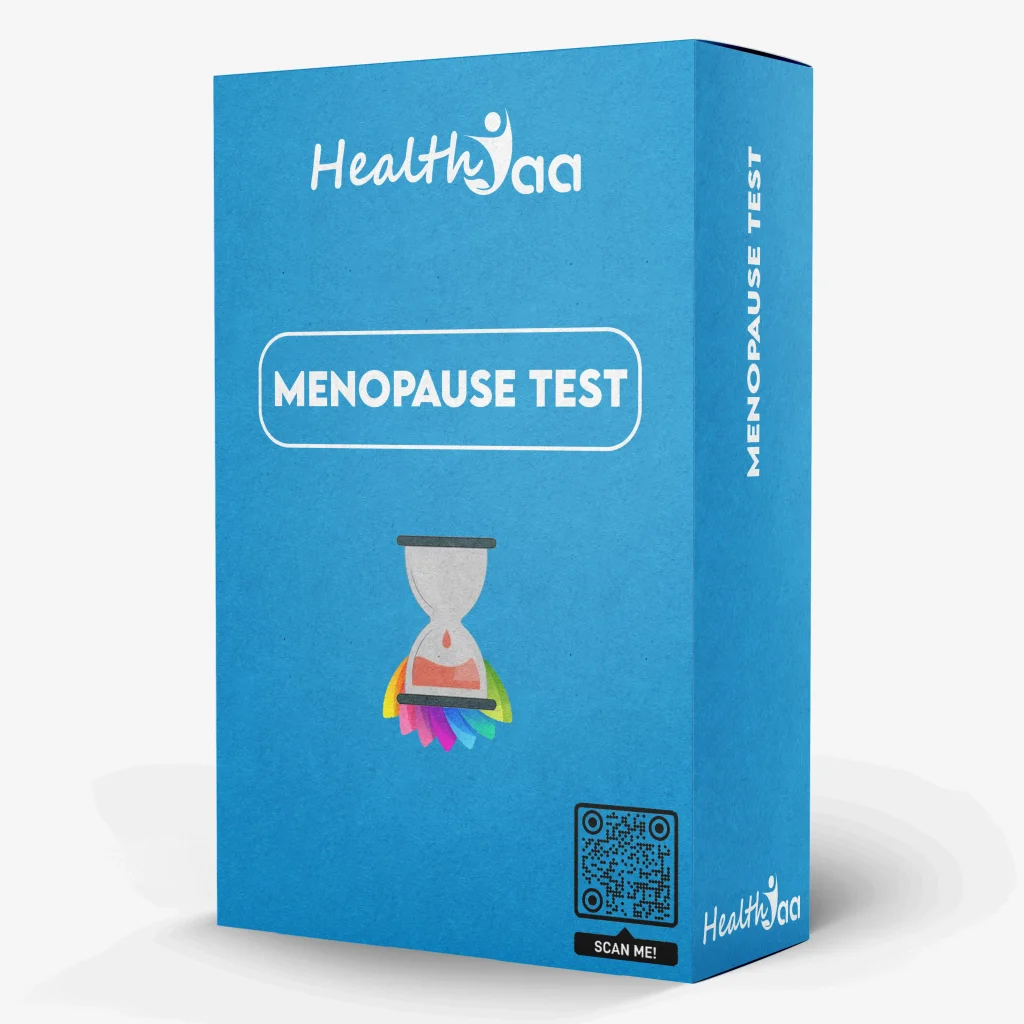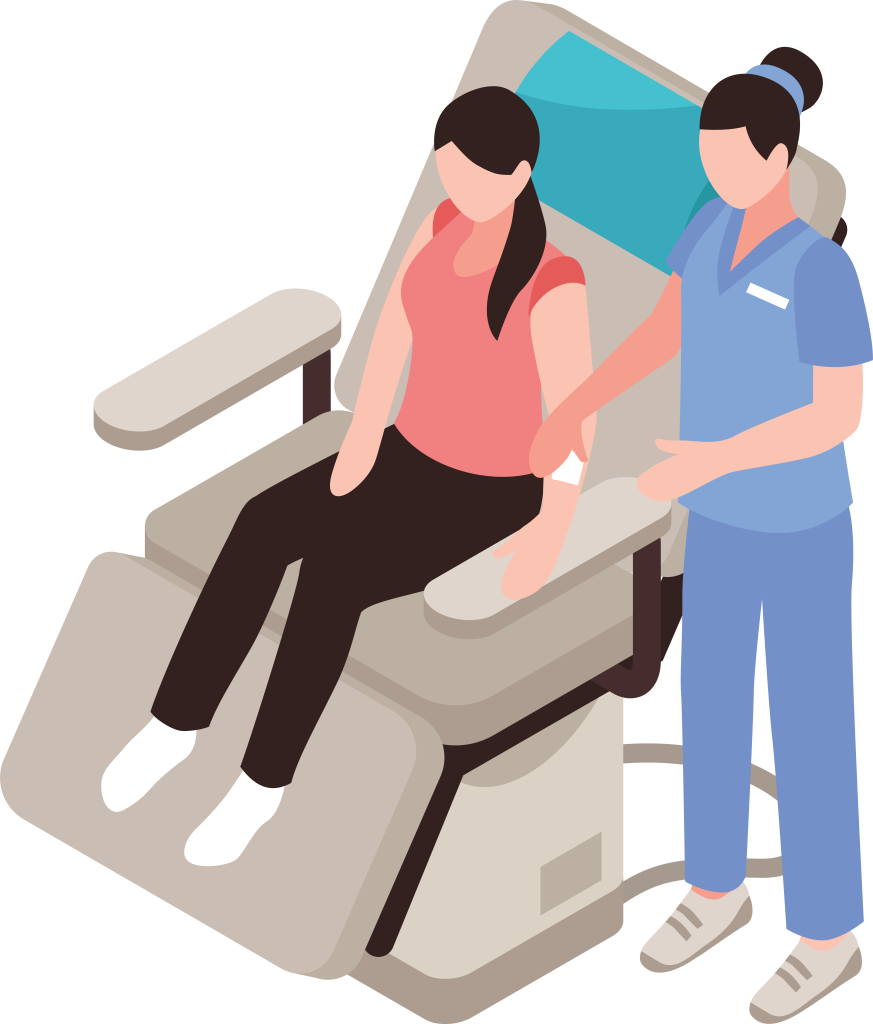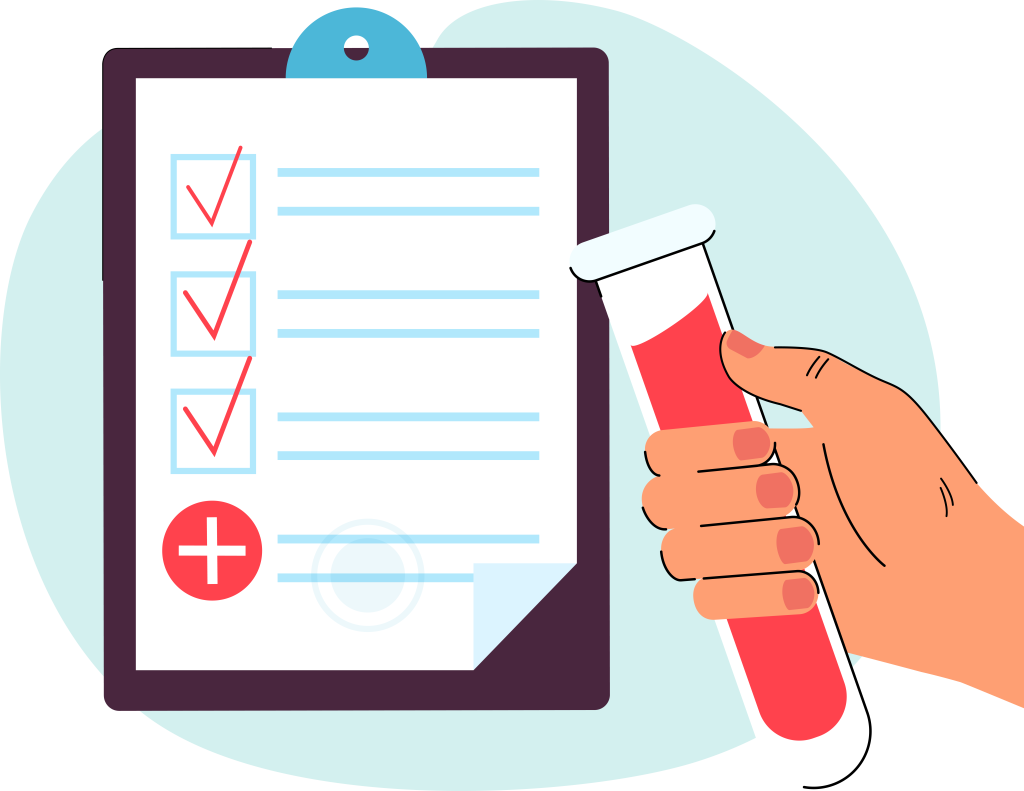
Menopause Test
£88.00
- Blood sample
- 5 Biomarkers
- Quick Results
Our Menopause Test is a comprehensive assessment designed to evaluate hormonal changes associated with menopause. It includes key parameters essential for understanding the menopausal transition.
Results: 1 day after sample arrival in lab
Phlebetomy Charges:
Leicester Clinic: NIL
Please visit our clinic at LE4 6QT to provide your sample.
Other Clinic: + £50.00
Choose from our range of clinics nationwide to have your blood taken from a vein in your arm by a healthcare professional.
Home Phelebetomy: + £80.00
A qualified nurse will visit you in your home to collect your blood sample from a vein in your arm.
**You must be at least 18 years old to purchase a Product and to provide a sample for testing.
TEST PREPARATION
Take this test two to five days after the start of your period, ideally on day three. It can be taken at any time if you do not have periods. Hormonal contraception can affect this test, taking a break from this and using barrier contraception will give more accurate results
What parameters are tested?
Follicle-Stimulating Hormone (FSH)
Measure FSH levels, a hormone that plays a crucial role in regulating the menstrual cycle. Elevated FSH levels are indicative of decreased ovarian function, a common occurrence during menopause.
Luteinizing Hormone (LH)
Assess LH levels, another hormone involved in the regulation of the menstrual cycle. LH levels, when elevated, can also signal changes in ovarian function associated with menopause.
Oestradiol
Measure oestradiol levels, a form of oestrogen that decreases during menopause. Monitoring oestradiol helps assess the decline in ovarian function and hormonal changes characteristic of menopause.
Thyroid-Stimulating Hormone (TSH)
Evaluate TSH levels to assess thyroid function. Fluctuations in thyroid hormones can influence menopausal symptoms, and testing TSH provides insights into thyroid health during this transitional phase.
Free Thyroxine (FT4)
Assess ketone levels in the urine, which may indicate the breakdown of fats for energy. Elevated ketones can be associated with conditions such as diabetes or fasting.
How it works?

Do your test
Order conveniently and choose your preferred clinic. Our team will confirm your appointment, ensuring a seamless process.

Fast, accurate results
With our CQC-accredited lab, expect precise results delivered securely to your email within 24-48 hours.

Support your health
Our dedicated team is here to offer guidance, answer queries, and provide ongoing support tailored to your needs.
FAQs
Your FAQs Answered!
"Answers to common queries for your peace of mind"
A Menopause Blood Test assesses hormonal levels to help determine if a woman is transitioning into menopause. It evaluates key hormones like FSH, LH, Oestradiol, TSH, and Free Thyroxine.
Menopause symptoms vary, but commonly include hot flashes, mood swings, night sweats, irregular periods, vaginal dryness, and difficulty sleeping.
LH levels surge during menopause, indicating the body's increased effort to stimulate ovulation. Monitoring LH helps understand hormonal changes.
FSH levels rise during menopause, indicating the ovaries are producing less oestrogen.
Oestradiol, a form of estrogen, decreases during menopause. Its measurement helps gauge the decline in ovarian function and estrogen production.
Thyroid hormones influence overall health. TSH and Free Thyroxine are measured to rule out thyroid-related factors affecting menopausal symptoms.
Typically, between 45-55, but individual experiences may vary.
Perimenopause is the transitional phase leading up to menopause, during which a woman's body undergoes hormonal changes.
Menopause marks the end of the reproductive years, defined by the absence of menstrual periods for 12 consecutive months.
Yes, lifestyle factors can influence hormonal levels. Maintaining a healthy lifestyle, including regular exercise and a balanced diet, contributes to overall well-being during menopause.
Got Questions? Ask Us!
Don’t see the answer you’re looking for? Reach out to us directly!
Our team is ready to assist you. Contact us now!

